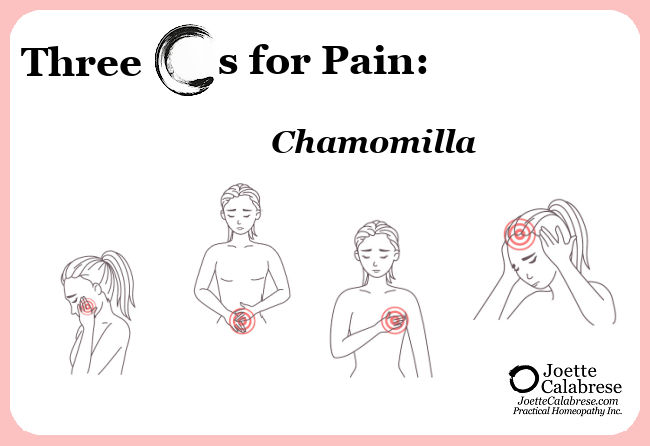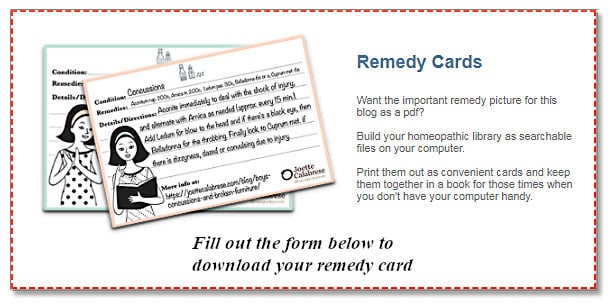You can hear a sufferer’s cough. You can see a sufferer’s eczema. But pain is invisible.
How many people do you know who are suffering from pain? It may be more than you think. Luckily, there is homeopathy.
It has been reported that 20.9% of Americans experience chronic pain. More often than not, these folks suffer in silence. Their daily routines are affected and, in some cases, severely limited. Their relationships deteriorate; their mental acuity diminishes; their joie de vivre often disappears.
The standard of care in conventional medicine is, of course, synthetic drugs of commerce, otherwise known as pain medication. Even if they work in the short term, the long-term risk of addiction is commonly worse than the initial condition.
Homeopathy for pain
Homeopathy has historically been shown to address pain in a polite, gentle and natural way, with no risk of requiring higher and higher dosages or of developing an addiction. So, over the next few weeks, let me introduce you to a short series: 3 Cs for Pain.
First up this week is homeopathically prepared Chamomilla.
Chamomilla is well-known to moms who use homeopathy for their children’s teething pain, but it is so much more than just for teething or dental pain. It has a grander ability, as it can also be used for general pain, particularly when the sufferer demonstrates the same characteristics as a teething child.
The pain sufferer for whom Chamomilla would be a reasonable consideration is over-sensitive and can’t be appeased … just like a teething infant. The sufferer is irritable, fractious, and displays a “Don’t touch me; don’t get near me” attitude.
Do you understand the comparison?
Let me give you an example. I once had a case of a teenage girl with painful menses. We’ll call her Molly. During our consultation, Molly was rude and abrupt when her mother interjected pertinent information. She was oversensitive to an extreme, rolling her eyes and being generally insufferable.
This was not merely typical teenage behavior. I could tell Molly could barely contain herself. At one point, her mother said, “Aw, honey,” and ever so gently touched Molly’s shoulder. Molly pulled away and winced, simply from being touched!
(Ahem … Molly’s mother needed to provide a good dose of what I call “Parental Discipline 200c,” but that’s a matter for another time.)
But do you see the similarities? Her behavior was tantamount to a teething infant arching their back and trying to kick their mother away. She was quarrelsome and obstinate.
In Molly’s case, Chamomilla vulgaris 200, twice daily during her menstrual cycle, was the answer. Molly slowly returned to the typical behavior expected of her age group. She became a normal “teenager,” a little difficult but not uncivil.
Indeed, Chamomilla is an excellent consideration for painful menses as well as for labor pain. In fact, in Robin Murphy’s “Nature’s Materia Medica,” he mentions its use for “Intolerable labor pains, sends the doctors and nurse away, then calls again.”
Once again, it’s an example of the person requiring Chamomilla having a pain-induced meltdown.
Keep in mind that I’m not talking about mild pain. Pain calling for Chamomilla is severe; the person can be found screaming and demanding relief, perhaps even with anger and rage. As we mentioned earlier, because we can’t hear or see pain, we use the symptoms (as described by the sufferer) and our observation of their behavior.
When an individual of any age mirrors the fractious behavior of a teething infant by displaying hypersensitivity to an unendurable pain, consider Chamomilla. So, read more about it in your materia medica and add it to your well-curated homeopathy kit.
Be sure to check back for my blog next week when I’ll discuss the 2nd of the 3 Cs for pain: Cimicifuga.
(And Mighty Members, I’ll have a follow-up for you later in the week regarding Chamomilla and coffee.)
Pass on the good news of homeopathy!
Warmly,
P.S. I’ve discussed Chamomilla in several blog posts in the past:
Pain from contractions during birth
But, my friend, the most effective way to understand the complete picture of pain and develop the competence to know which remedy to choose is to take my course, “Make It Stop! Escape From the Prison of Chronic (and Acute) Pain Using Practical Homeopathy®: Learn Effective Methods to Uproot Pain for Good.”
In it, I offer a solution to physical pain that works — a solution free of risky surgeries, injections and drugs with their adverse side effects. Could there be a better resource for your family? Don’t allow anyone you love to suffer in silence, go through needless surgeries or take dangerous drugs. There is no better way to help them thrive than by introducing them to well-chosen homeopathic medicines.
And remember — all my Mighties (Joette’s Mighty Members) qualify for a 10% discount on course purchases.






